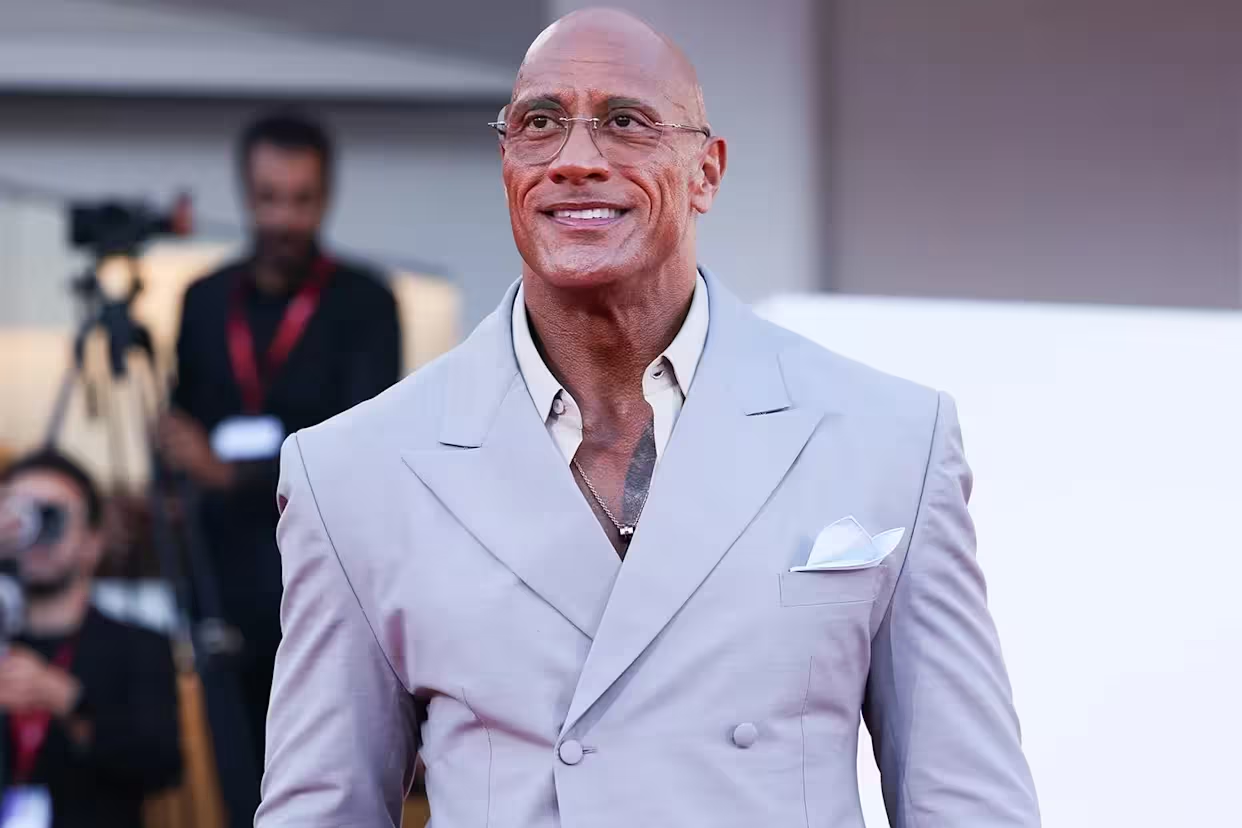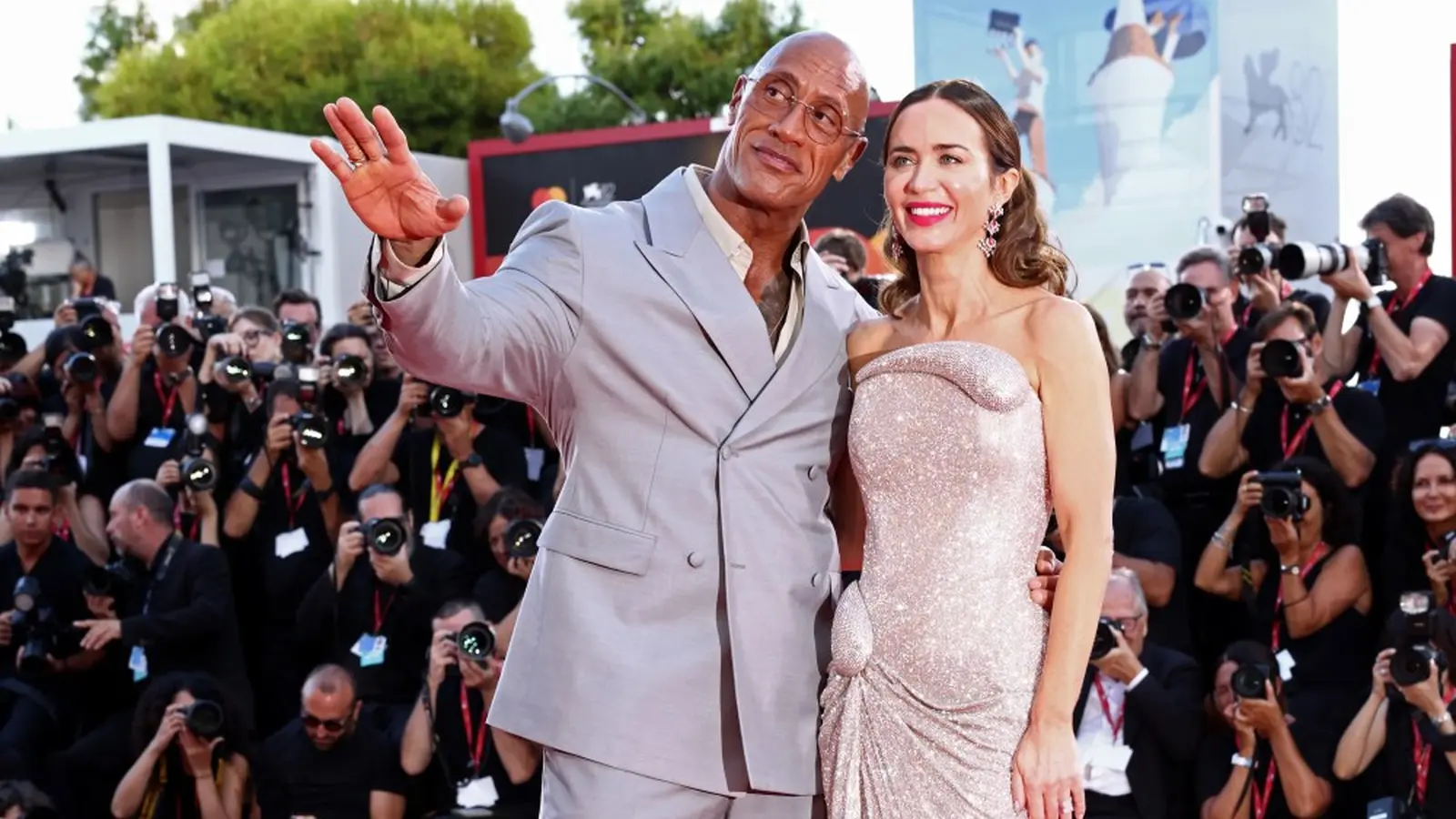5 Minutes
From Action Star to Awards Contender: A Night on the Lido
Dwayne Johnson arrived at the 82nd Venice International Film Festival expecting applause, but what unfolded on the Lido was something closer to catharsis. His portrayal of 1990s fighter Mark Kerr in Benny Safdie's A24 drama The Smashing Machine received a 15-minute standing ovation — one of the festival's longest — and left the 53-year-old actor openly weeping as applause continued. For a performer synonymous with blockbuster spectacle, the evening signaled a clear shift toward serious awards-season conversation.
Why Venice Reacted So Strongly
The ovation was more than star worship; it was recognition of a radical transformation. Johnson is nearly unrecognizable in prosthetics and a granular performance that exposes vulnerability, addiction, and rage. The film’s raw, unflinching tone — a Safdie hallmark — strips away marquee charisma to reveal a fragile masculinity that resonates with festival audiences accustomed to intimate, performance-led cinema.
What Makes This Role Different for Johnson
Johnson’s career has been dominated by tentpoles: Jumanji, Black Adam, and Fast & Furious installments. In The Smashing Machine he embraces nuance over bravado. He shares the screen with Emily Blunt as Dawn Staples, whose quiet steadying presence amplifies Kerr’s internal unraveling. The result is a character study that sits comfortably alongside recent actor-reinvention arcs — think Joaquin Phoenix in Joker or Brendan Fraser in The Whale — where industry acclaim followed visible personal and professional risk.
"Benny Safdie pushes actors into uncomfortable places to find truth," Johnson said during press events, but words only partly explain what the Lido audience witnessed.
Expert Perspective
"This is not simply a celebrity taking on a gritty role — it's an actor willing to surrender the persona that made him famous," says film critic Ana Kovacs. "Johnson's performance is raw enough to be divisive, and that's precisely the kind of risk festivals reward."

Context: Safdie's Direction and the Biopic Trend
Benny Safdie makes his solo feature directorial debut with the film, stepping away from the fraternal brand he built with Good Time and Uncut Gems. The Smashing Machine continues the current appetite in cinema for biographical and sports dramas that favor interiority over triumphant beats. A24's involvement places the film squarely within contemporary independent prestige cinema, where prosthetic-aided transformations and intensive method approaches often translate into awards attention.
Comparisons and Industry Insight
Compared with other fighter and sports films — from Raging Bull to Southpaw — Safdie's film avoids clear-cut redemption arcs. It leans into the messy, cyclical nature of addiction and fame. For Johnson, this resembles the career turn that George Clooney or Matthew McConaughey made: from reliable leading-man to actor seeking critical redemption and Oscar credibility.
Behind the Scenes & Fan Reaction
Production notes reveal Johnson underwent extensive prosthetic work to capture Kerr's physique and visage, a testament to the film’s commitment to verisimilitude. On the Venice red carpet he signed autographs, took selfies, and laughed along when a fan shouted the old WWE call-and-response line, reminding the crowd of both his past and present.
Fans and early critics have been quick to draw parallels between Johnson’s emotional display on the Lido and Brendan Fraser’s tearful Venice moment that preceded his Oscar run. Social media lit up with clips of Johnson’s tears and the standing ovation, fueling instant Oscar speculation.
Critical Notes: What May Divide Audiences
While many praised the film’s emotional intensity, some critics may find Safdie’s aesthetic — handheld camera work, abrupt tonal jolts — polarizing. Those expecting a triumphant sports biopic will be surprised; The Smashing Machine is stubbornly intimate and often bleak.
Conclusion: A Turning Point, Not a Guarantee
The Venice response positions The Smashing Machine as a serious awards-season player and marks an important chapter in Dwayne Johnson's career evolution. Whether the ovation translates into Oscar nominations remains uncertain, but the film has undeniably reframed conversations about Johnson's range and about Safdie's ambitions as a solo director.
As the film heads to its A24 release in November, audiences should prepare for a gritty, emotionally charged portrait rather than a conventional sports drama — and for the sight of a megastar daring to get small on camera to make a big statement.
Source: variety


Leave a Comment